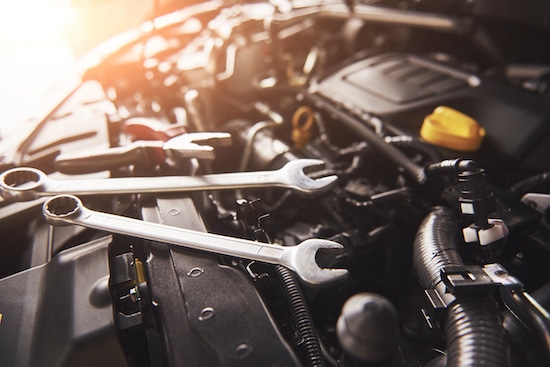Our offer for private customers
Are you passionate about cars, motorcycles, boats, airplanes, camper vans, or any other similar field? Do you own a vehicle or are considering a purchase, and would you like to know the actual condition of the engine and/or mechanical components of the vehicle in question?
Eurofins IESPM recommends conducting an engine diagnostic through an oil analysis.
What is engine diagnostics?
It’s a physico-chemical analysis of the lubricating oil contained within the engines or mechanical components of machinery or vehicles.
Eurofins IESPM carries out in-depth analyses of lubricating oil, enabling us to establish a precise diagnosis of your vehicle’s state of “health”. Lubricating oil indeed contains valuable information about mechanical behavior: this information can help us identify engine wear or other potential malfunctions and anomalies (such as the presence of fuel or water in the engine, for example). Eurofins IESPM can then advise you on suitable maintenance based on your usage.
Motor oil analysis has been used by professionals for over 60 years as part of our condition-based maintenance programs.
Why carry out engine diagnostics?
Eurofins IESPM recommends that you carry out engine diagnostics if :
- You use your vehicle on a daily basis.
- You’ll be making an unusually long journey (e.g. during vacation periods).
- You would like to have a preventive inspection of your vehicle
- You want to buy or sell a classic vehicle
- You’re about to buy a used car and want to check the engine’s condition.
- Vous souhaitez vendre votre véhicule au juste prix et en toute sérénité
- Vous hésitez à engager de gros travaux sur un véhicule âgé.
This diagnosis reveals and prevents any anomalies that could disrupt the vehicle’s operation and therefore its safety:
- Combustion, injection, and carburetion anomalies.
- Degradation/oxidation of the lubricant, which can be caused by pollutants, excessive mileage, prolonged use, operation at high temperatures, or extended storage.
- Presence of water, integrity of the cooling system (head gasket, cylinder liner seal, water pump, base gasket, etc.).
- Abnormal presence of fuel (injection fault, vehicle use, etc.).
- Parts wear (piston, timing, bearings, ring gear, turbo, etc.).
- Air intake fault (air filter).
- Presence of external pollutants (coolant, water, silica, sodium, etc.).

